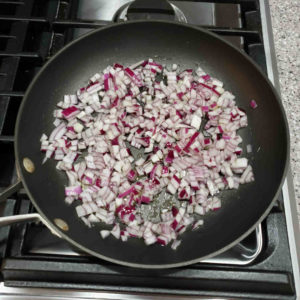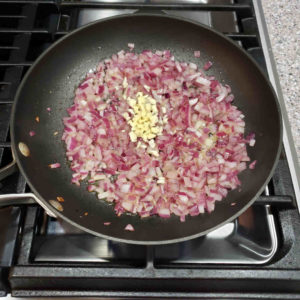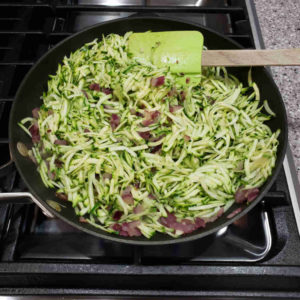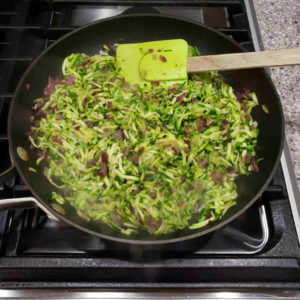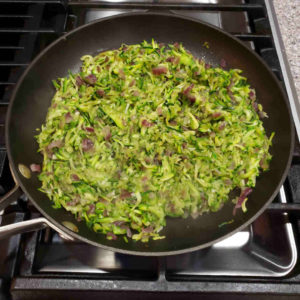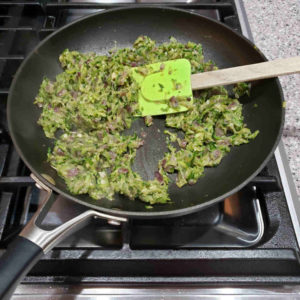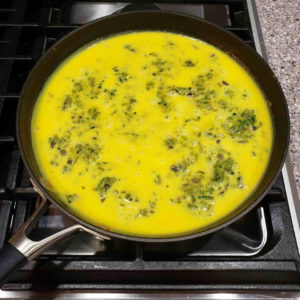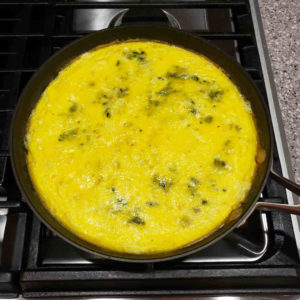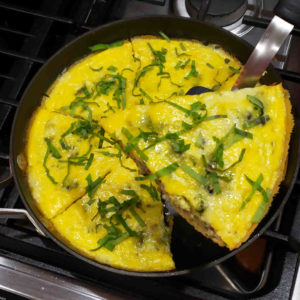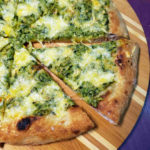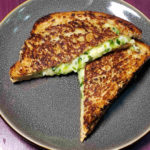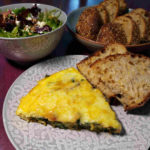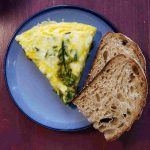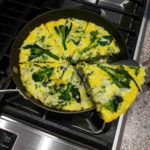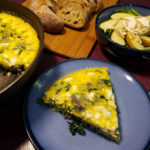About Melting Summer Squash
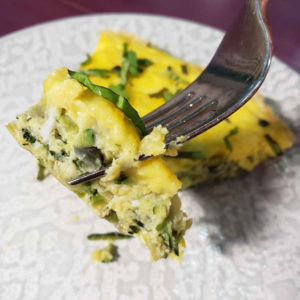
Yes, the recipe has “zucchini” in its name. But, as I talk about in my All About Zucchini and Other Summer Squash post, you can substitute any of the other summer squashes. Second, once you make anything with melted summer squash, you’ll see how you can use this technique to make so many different dishes such as pizzas, pastas, and frittatas. Melting is my single favorite way to prepare summer squash. The reason is, as I also explain in my All About Zucchini and Other Summer Squash post, that summer squash is very high in water content. Melting sweats off much of the water, reducing the squash into something with much more flavor and giving it a rich and creamy texture. “Melting” describes the result more than it does the technique. The technique is to first grate the squash and then to sauté the squash in with either butter or olive oil and a pinch of salt until the result is reached. It should take between 15 and 20 minutes. You can also season the melted squash by infusing garlic or fresh rosemary into the olive oil used to sauté. Or you can add a teaspoon of dried thyme or oregano at the start of the sauté, or other chopped fresh herbs towards the end of the sauté. It’s also really nice with just that pinch of salt that went in at the beginning.
Follow the Frittata Mother Dish Technique
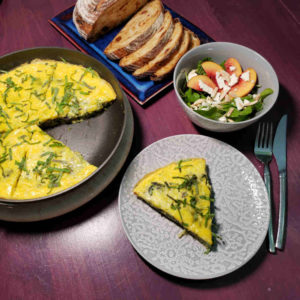
This recipe follows the guidelines that I describe in my post on the Frittata Mother Dish Technique. First, using an oven-safe, non-stick skillet, we sauté up some diced onion, adding in some minced garlic after the onions are softened and translucent. Then we add in the grated summer squash and sauté until it has given up much of its water content and has a nice creamy texture. We whisk up the eggs with a little cream and pour the mixture over the squash and onions. We give things a quick stir, top with cheese and pop the whole thing into the preheated oven. After about 15 minutes, we have a nicely cooked frittata. Optionally top the frittata with a freshly chopped herb, such as basil. To turn the dish into a meal, serve the frittata along with crusty bread and a fresh salad.
Photographic Walk Thru of the Recipe
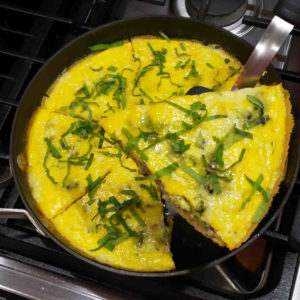
Melted Zucchini Fritatta
Equipment
- 10” oven-safe non-stick skillet
Ingredients
- 1 pound Summer Squash grated with a box grater
- 1 medium yellow onion (6-8 oz) diced
- 1-2 cloves garlic minced
- 2 olive oil
- 8 large eggs see note
- 2 oz cream see note
- 4 oz cheese grated
- salt and pepper to taste
Instructions
- Preheat the oven to 325°F.
- Sauté the onion in 2 tablespoons of olive oil with about ½ tsp of salt on medium high heat. Sauté, stirring frequently, until softened. Expect about 5 minutes.
- Add the garlic to the pan, and sauté for another minute or two.
- Add the grated squash to the pan along with another ½ teaspoon of salt. Sauté until the squash is reduced and has a creamy texture. This should take about 15 minutes total. Early on you should be able to see the water pooling under the squash as it poaches in its own juice. Over time the sweating will slow down, the water will steam off, and the squash will reduce.
- While the squash sautés, beat the eggs with the cream, ½ tsp of salt and a few cranks of the pepper grinder.
- Evenly distribute the vegetables in the pan and pour the egg mixture over. Give a quick stir to suspend some of the vegetables off the bottom of the pan. Sprinkle the cheese evenly over the top (don’t skimp at the outer edge!).
- Transfer the pan to the pre-heated oven and cook until done. Timing will vary for various reasons. Other than the true oven temperature, the biggest variable is the amount of seasonal vegetables that are in the pan. As they have just completed cooking, they hold a lot of heat. The more of them, the quicker the cook. Start checking for doneness after about 10 minutes. There should be no jiggle if you shake the pan. A toothpick test can reveal if there is any runny egg. You are going for a custardy egg. Too little time is runny and too much time is rubbery.
Notes
- If you have access to duck eggs, use 6 duck eggs instead of 8 large chicken eggs. The larger yolk to white ratio that duck eggs have makes an indulgent frittata.
- The cream is to add milk-fat to enhance the creaminess of the final dish. You can use half-and-half, or whole milk if you don't have cream. If you only have 2% or skim milk, just skip the dairy. The frittata will still be good, but it won't be as custardy as it could be.
- Different types of cheese may be used in this dish. The main requirement is that the cheese is melty. Gruyère, Montery jack and provolone are all good options.

